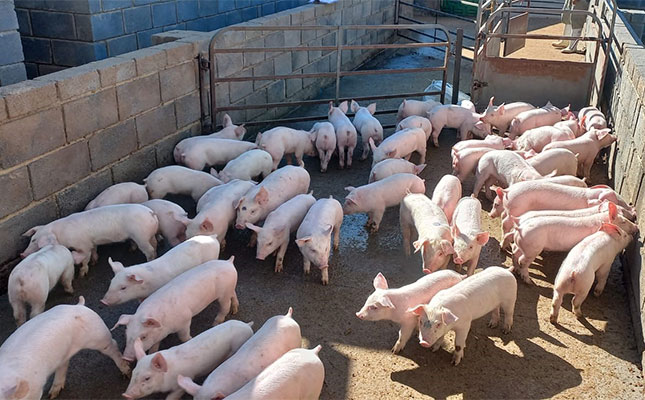Founded in 1992 by a group of visionary leaders, including Nelson Mandela, Walter Sisulu and Beyers Naudé, Thebe Investment Corporation (TIC) emerged as a beacon of hope in post-apartheid South Africa. Over the years, TIC has become one of the leading diversified investment companies in South Africa, and currently manages assets worth around R8 billion.
From its inception, TIC has been more than just an investment company. It is a force for transformation, and is committed to uplifting communities and empowering historically disadvantaged individuals. This is achieved through the formation of strategic partnerships and investments.
The company is active in a wide range of sectors, and has invested into the food and agro-processing, and agricultural industries, amongst others. Presently, more than 2 500 commercial and small-scale farmers benefit from TIC’s various enterprises.
Leveraging strategic partnerships
WeGrow Farming Enterprises (WeGrow), one of TIC’s interests, is a shining example of what can be achieved through strategic partnerships. The business is located in Amersfoort in Mpumalanga, and was established in 2012 as a partnership between Dolf Bam of BB Boerdery and Vusi Khanyile of Afrikan Farms.
WeGrow currently produces around 10 000t of maize and 2 000t of soya bean per annum on 1 800ha. The production of these crops is managed by Thys Bam, the brother of Dolf, the current CEO of WeGrow. The operation’s maize and soya bean are traded on the open market.
In 2016, WeGrow decided to add a pig farm to the business. Named WeGrow Piggery, the operation came into full production in 2020, with a 600-sow unit.
“We are continuously introducing PIC breeding material into the herd to increase genetic quality,” says Dolf.
And with the help of TIC, WeGrow Piggery has more than doubled its herd since its inception, and now consists of a 1 300-sow unit.
Dolf says this growth in the piggery is not only a result of TIC’s financial investments into the operation, but also because of its farming support network, which saw the addition of Jacques Cloete, a livestock expert, to the team.
As with all piggeries, biosecurity is the pinnacle of successful production.
At WeGrow Piggery, all vehicles entering the facility are disinfected. All visitors to the farm must report any contact with animals that could potentially cause a threat to the farm, and are required to shower before donning protective clothing and shoes.
No live animals are allowed to be brought onto the farm, says Dolf.
Future plans
WeGrow Piggery currently supplies 720 slaughter pigs to Lynca Meats, one of the largest pork processors in the country, on a weekly basis.
“We have a secure and stable arrangement with Lynca Meats. It’s a more stable option [than selling on the open market], and you know you’ll get paid on time,” says Dolf.
WeGrow Piggery is Pork-360-certified, and meets the requirements of pig welfare and production as set out by the South African Pork Producers’ Organisation.
All feed for the piggery is currently bought in, but WeGrow hopes to establish its own feed mill.
“The long-term goal is to establish a feed mill on-site, which will allow us to process our own maize and feed it directly into our piggery operations,” says Dolf.
This will also allow WeGrow to integrate further into the value chain.
Email Dolf Bam at dolf.bam@wegrowpigs.co.za.



